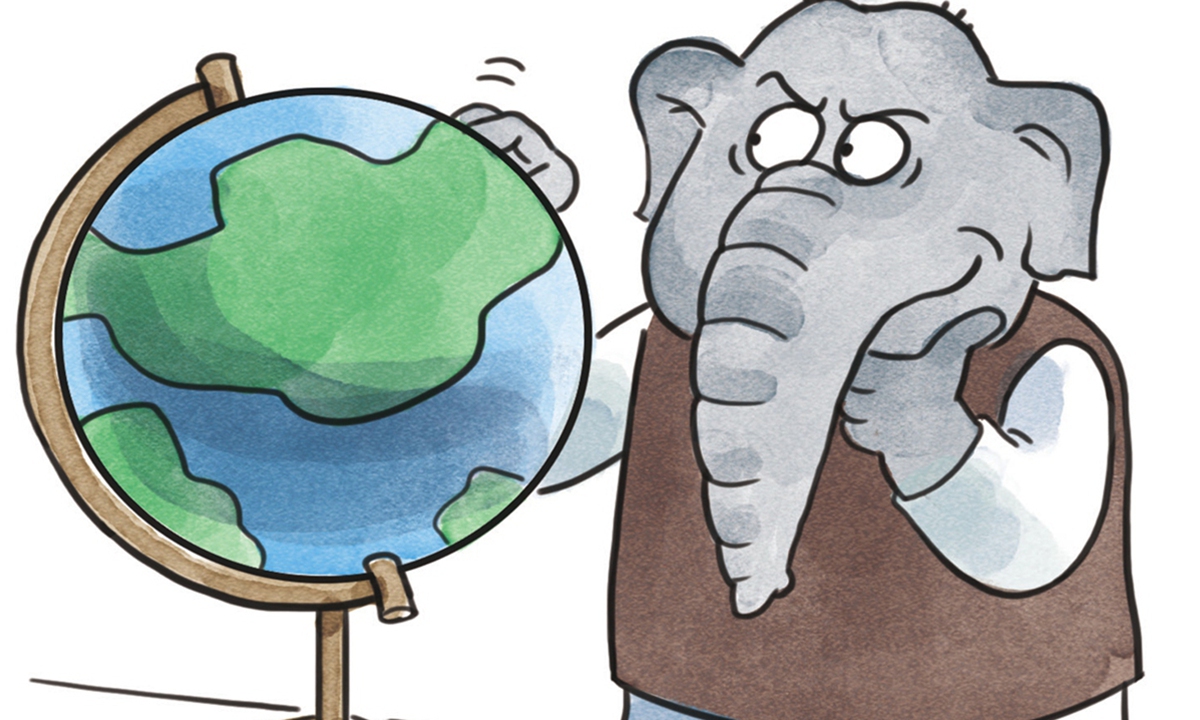
Illustration: Chen Xia/Global Times
India is actively joining the "anti-China club," hoping to put more pressure on China by siding with the Philippines on the South China Sea issue.As the US and some Western countries stand up to back the Philippines amid its tensions with China over the South China Sea issue, Indian Minister of External Affairs S. Jaishankar met with his Philippine counterpart in Manila on Tuesday, calling for "staunch adherence to a rules-based order" and reiterating "India's support to the Philippines for upholding its national sovereignty." Jaishankar's remarks are obviously in line with the stance of the US and its allies on the South China Sea issue.
In recent years, India has been closely following the US' Indo-Pacific strategy and showing loyalty to the US, in the hope to establish its image as a global major power. In June 2023, India advocated for compliance with the 2016 arbitral tribunal regarding the Philippines' case against China in a joint statement with the Philippines, completely shifting its previous neutral stance on the South China Sea issue.
India's ostensible siding with the Philippines is actually playing the South China Sea card and igniting tensions around China's periphery, so as to exert more pressure on China and gain an advantage in its border dispute with China.
Recently, India engaged in a series of high-profile moves on the border issue. In early March, India suddenly deployed 10,000 soldiers to its border with China. On March 23, Jaishankar claimed that China's Zangnan area is a "natural part of India."
Qian Feng, director of the research department at the National Strategy Institute at Tsinghua University, believes that India wants to exploit the South China Sea issue as a strategic hedge against China. Lan Jianxue, director of the Department of Asia-Pacific Studies at China Institute of International Studies, echoes this view and points out that in the current situation where the US and Western countries are increasingly tilting toward the Philippines in the South China Sea issue, India's interference also aims at strengthening coordination with other countries in the Quad alliance, with the ultimate purpose to compel China to make concessions on the China-India border issue.
India could have collaborated with China for mutual development, but instead it has turned the China-India relationship into a strategic competition in the instigation of the US and the West, which is nothing less than an act of self-destruction. India thinks it has seized a "golden opportunity" to contain China, but it is just being very naive.
India meddling in the South China Sea issue is not wise. The disputes between China and the Philippines are irrelevant to any third party. India's so-called support is nothing but parroting, which will only make India more like a follower of the US. In the long term, India will only gradually tie itself to the US chariot, thus becoming a pawn in the US global hegemony network, and eroding India's own strategic autonomy.
At the same time, India's involvement in the South China Sea will make the China-India border issue more complicated. The purpose of the US, Japan and Australia to vigorously draw India into the Quad is to keep China and India consuming each other in hostility. The more tense the situation in the South China Sea, and the more strained the relations between China and India, the more benefits the US and Western countries will reap.
Currently, China and India are jointly making efforts to address border issues through dialogue, and their common interests far outweigh the differences. However, if New Delhi continues to misjudge the situation and underestimate China's determination and will, it will only lead to more risks and losses for India in the future.

